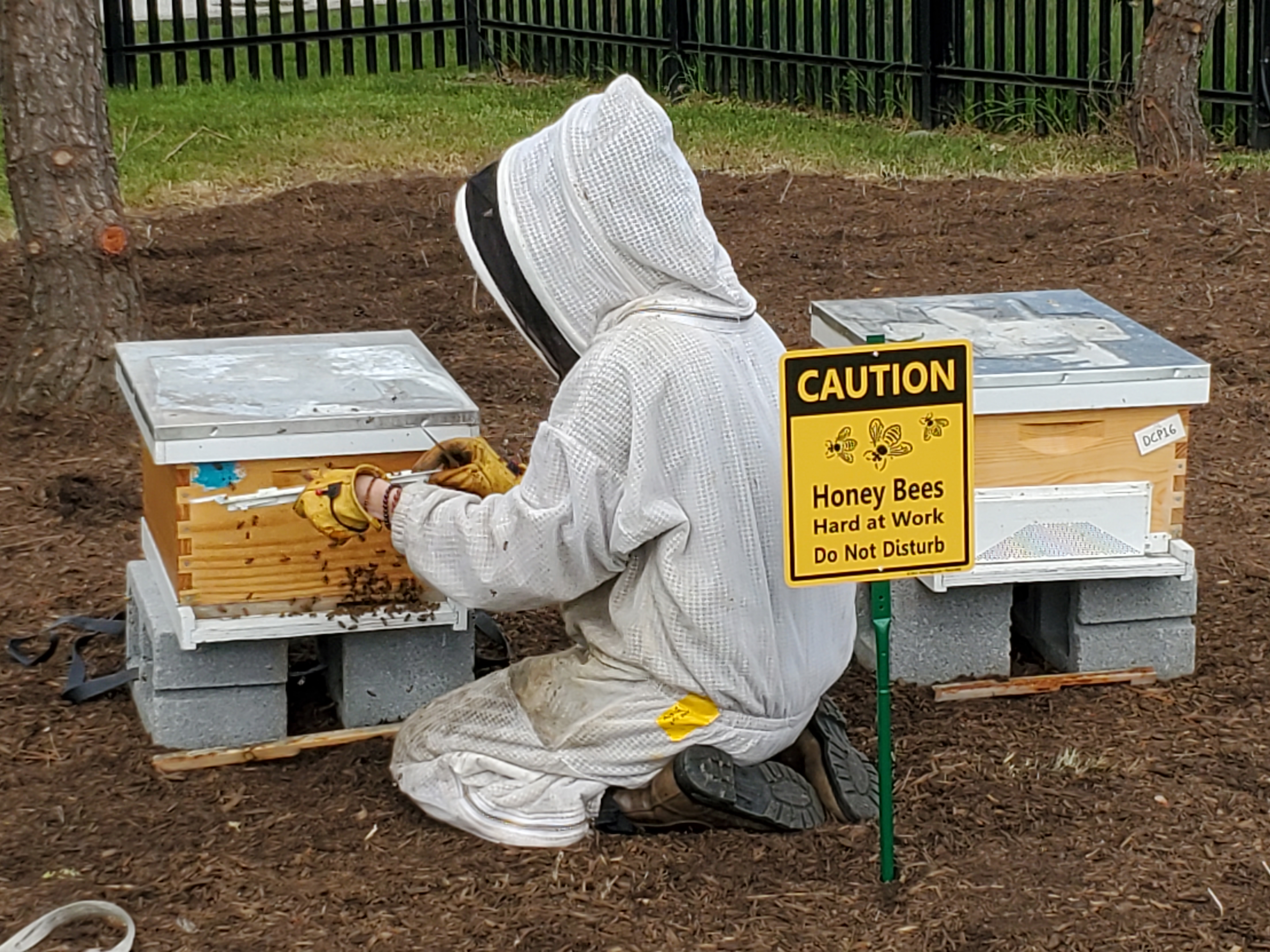
The buzz around bees: Looking back, and ahead, to the health of pollinators at GSA
Federal buildings are a hive of activity. And it’s not just on the inside.
GSA is helping pollinators – mostly bees and butterflies – find a good home. That can mean on the ground or on the roof, where the agency is working to install, manage, and maintain honeybee hives at federal buildings nationwide.
Pollinators are an important component of sustainability and climate change, carrying pollen from flower to flower and enabling plants to reproduce. Over 80% of flowering plants require pollinators to thrive. Without them, we would be far less green.
GSA’s Pollinator Protection Initiative advances sustainability practices and confronts climate change. The pilot phase of the initiative ended in January 2023 with national management handing over the reins to regional offices.
To support pollinators, GSA honeybee hive studies are continuing at:
- Warren B. Rudman U.S. Courthouse in Concord, New Hampshire.
- Centers for Medicare and Medicaid Services Headquarters in Woodlawn and FDA White Oak, Silver Spring, Maryland.
- U.S. Courthouse and Federal Building in Hammond, Indiana.
- Federal Archives Records Center in Chicago, Illinois.
- Denver Federal Center in Denver, Colorado.
GSA supports placing hives in settings ranging from large federal campuses to smaller buildings in urban areas that are federally owned or leased by GSA. While some hives are managed by private contractors, other facilities collaborate with local beekeeper organizations, and in some instances, GSA employees manage the onsite hives.
Contractors help determine placement, equipment, operations, and maintenance of the hives. FDA White Oak – spanning 670 acres in Montgomery and Prince George’s counties in Maryland – shows how partnerships with local beekeeping organizations can work. Local beekeeping organizations often struggle to find sites for beehives, while GSA is interested in hosting hives. The result at the White Oak campus is 136 bee hives have been placed and are managed through a Memorandum of Understanding with the Maryland Beekeepers Association.
Similarly, the 623 acre Denver Federal Center in Lakewood, Colorado, has managed without contracting with private beekeeping entities. Instead, GSA employees manage the six hives in the apiary, or place where the bees are kept. GSA has a very active network of employee beekeepers who may not be able to host hives residentially, or find a beehive location closer to home.
The pilot successfully proved what models can be used to host hives at GSA facilities. As the number of hives grows, GSA will continue its beekeeping, landscaping, and planning for pollinators. When combined with the knowledge gained in the pilot year, ongoing efforts will inform a more efficient and effective design policy for the future.
Through the beekeeping efforts, GSA is building biodiversity near federal buildings and raising awareness on the importance of pollinators in local environments.
Now that’s buzzworthy.
For more information please visit GSA’s Pollinator Protection Initiative webpage.

 U.S. General Services Administration
U.S. General Services Administration
